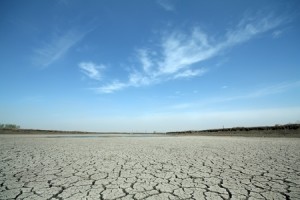
“Will there be enough irrigation water for our farms? What’s the fallback if hydroelectric dams run out of water which will power turbines? What is being done so our taps won’t go dry?” Recto said in a press statement.
He said he has filed Resolution No. 645 asking the Senate to summon officials of the Department of Agriculture and Department of Energy who would craft measures to cushion the impact of the feared dry spell.
The El Niño weather phonemenon, which is characterized by the warming of the waters of the Pacific Ocean, causes less rainfall and even drought in places like the Philippines but a lot of rainfall in other parts of the world. It also means much stronger typhoons during the monsoon season.
Recto said it would be prudent for the Senate to take a proactive stance now and demand “who’s minding the store’’ than do a post-mortem inquiry months after El Niño has wreaked havoc.
“There are three areas of concern: food, power and drinking water,” he said.
The United Nations Office for the Coordination of Humanitarian Affairs has raised concern that with prolonged dry spells and stronger storms to hit the country, cyclones would affect the north with increased intensity.
The weather bureau has predicted El Niño to set in this month, peak during the last quarter, and last until the first quarter of next year.
Forecasters said the phenomenon could reduce the amount of rainfall and could cause tropical cyclones to be much stronger and erratic, shifting northward.
To mitigate the effects of the anticipated long dry spell, officials said the Department of Agriculture would need an initial P1.61 billion to provide production inputs to farmers, promote water-saving measures, and push for modern and innovative farming and fishery technologies.
Last May, the department reported that crops valued at P823.9 million were lost to the early effects of the dry spell.
In 1998, El Niño swept through nearly 74,000 hectares of agricultural lands in 18 provinces, reducing rice and corn production by 27 percent and 44 percent.
Recto said the Department of Agriculture and The Department of Energy should present specific plans for each affected province.
He said he would also request information on water conservation measures in Metro Manila, and the countryside.
“Although it doesn’t create burning headlines, El Niño is a threat which we must confront now,” he said.
RELATED STORIES
Gov’t bolsters cloud seeding in anticipation of El Niño
Farmers learn how to adapt to El Niño